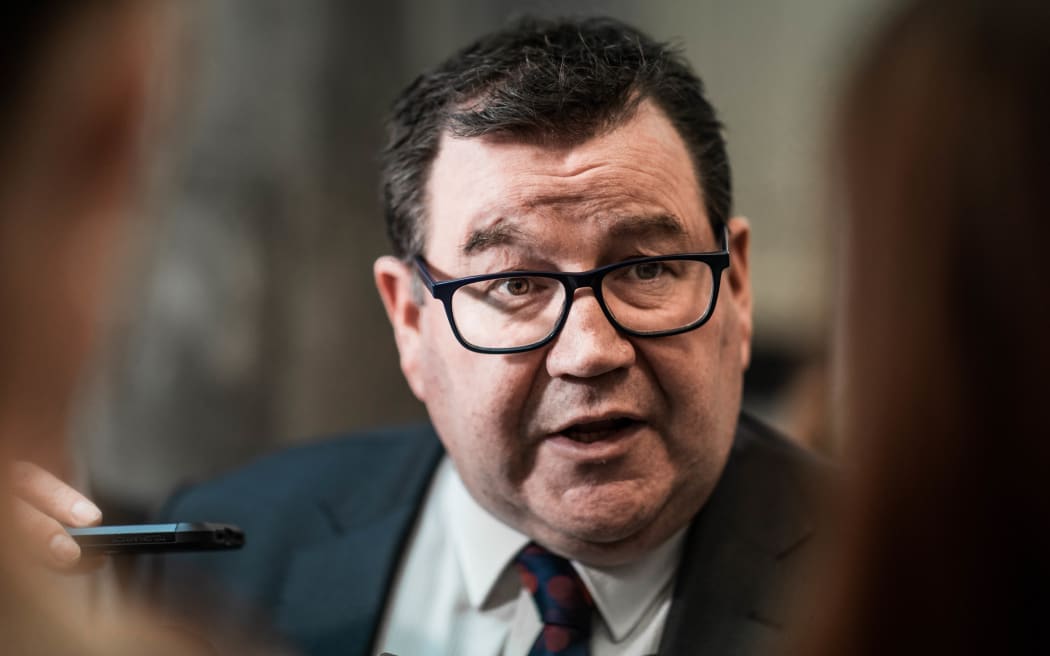
Grant Robertson. Photo: RNZ / Samuel Rillstone
Grant Robertson is defending the government's dumping and delaying of several big policies, despite the money spent on them so far, disputing it was "wasted".
Prime Minister Chris Hipkins said when he took the role in January a cleanout was in order, with an election looming and the cost of living at the forefront of Kiwis' minds.
On Wednesday much of it was revealed - the income insurance scheme and hate speech reforms delayed, and the TNVZ-RNZ merger and biofuels mandate scrapped entirely. Three Waters got a reprieve, punted back to the new minister for local government for further review.
The finance minister told Morning Report on Thursday the "whole apparatus of government" has to focus on the most pressing concern - inflation and the cost of living.
Asked how much was "wasted" on trying to merge the two state-owned broadcasters, RNZ and TVNZ, Robertson disputed the characterisation.
"There's an argument about whether money is wasted or money is spent… If the question you're asking is how much have we actually spent, allocated in the Budget last year was around $23 million - not all of that has actually been spent.
"We'll go through the wash-up of that with the minister of broadcasting in the next little while."
National Party finance spokesperson and deputy leader Nicola Willis lamented the lack of "repenting for the millions of dollars that have already been wasted on consultants and the like for the TVNZ-RNZ merger", calling Hipkins' reprioritisation a "halfway house".
"There was an admission that the government had lost focus on strengthening the economy and the cost of living. But some of these unpopular proposals remain on the table. Three Waters is still sitting there, the income insurance scheme and the jobs tax to fund it appears to have just been delayed…
"So we weren't celebrating in the National Party, because we still don't see a plan to be reducing the cost of living, to be lifting incomes. We're concerned the government will remain focused on these pet political projects."
Robertson said there was still a need for more investment and change in public broadcasting, which was why extra funding for RNZ and NZ on Air was included in Wednesday's announcements.
"The work carries on, but this particular vehicle is no longer seen as the priority."
With Labour holding a rare majority in parliament, Robertson was asked why they did not just push ahead with policies they believed in, even if they were unpopular - as National did with its asset sales programme.
The finance minister said Labour had achieved plenty despite stiff opposition, such as the ban on future oil and gas exploration, and not all the policies were dropped - only delayed.
"[Income insurance] was never going to be implemented until after the election, but putting through legislation in parliament right now, when businesses and households are under a lot of pressure, does not feel like the right thing to do."
E tū assistant national secretary Annie Newman, speaking to Morning Report directly after Robertson, said they would continue to pressure the government on that particular issue.
"Clearly they're saying it's not been cancelled, and we're pleased about that, because we think it's a critical policy. It wasn't due to be brought in… for some time, and we're seeing the problems right now that policy is designed to address.
"There's clearly a political argument because of the cost of living, but we will be putting the government under pressure to make sure that remains on the agenda, and that that becomes part of the industrial landscape of the future."

